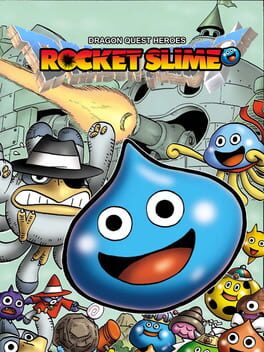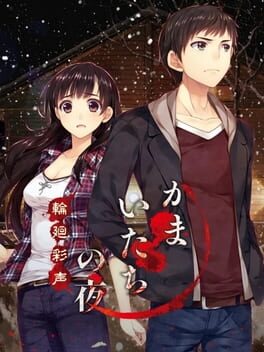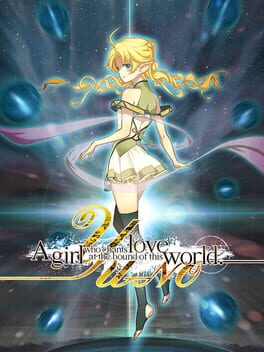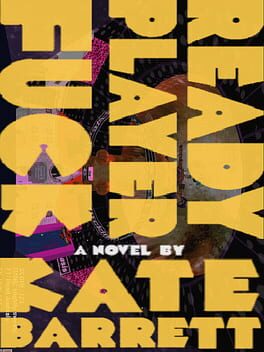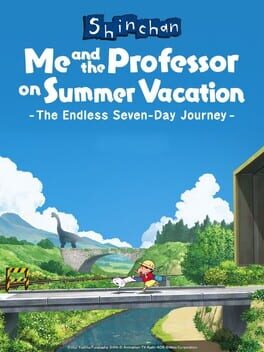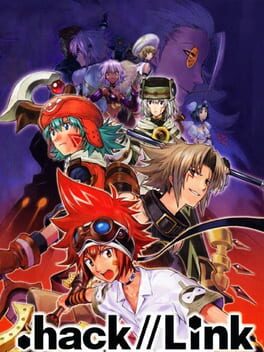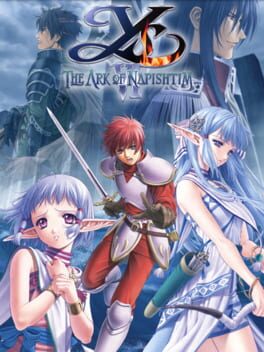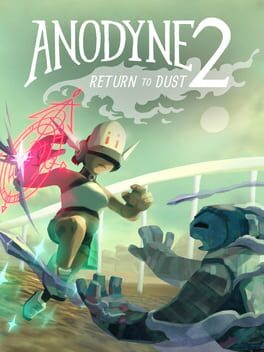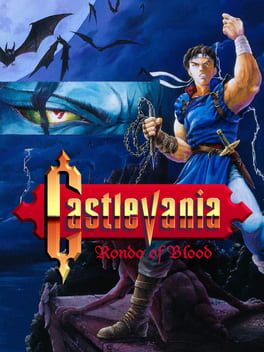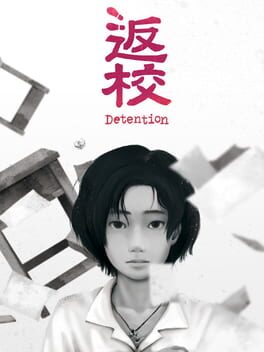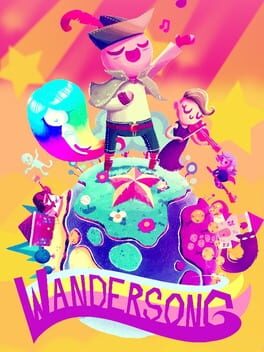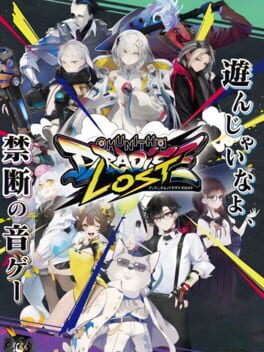wingXblade
CWs for Dragon Quest Heroes: Rocket Slime: fatphobia
An extremely cute and very slight 2D Zelda-like where you slingshot around as the DQ Slime and get into manual Tower Defense-offs with other DQ monsters. The sense of character is joyous in the expected cutesy ways that doesn't ever get old, but the tank fights have an RPG-y resource grind tacked onto them that doesn't ever really expand how the encounters work. The grind is avoidable, but it makes the late tank fights really drag on because of how numbers scale. Can't complain too much because of how forgiving and brief the whole thing is, but it's also def not like some hidden masterpiece of the franchise.
An extremely cute and very slight 2D Zelda-like where you slingshot around as the DQ Slime and get into manual Tower Defense-offs with other DQ monsters. The sense of character is joyous in the expected cutesy ways that doesn't ever get old, but the tank fights have an RPG-y resource grind tacked onto them that doesn't ever really expand how the encounters work. The grind is avoidable, but it makes the late tank fights really drag on because of how numbers scale. Can't complain too much because of how forgiving and brief the whole thing is, but it's also def not like some hidden masterpiece of the franchise.
2022
CWs for Butterfly Soup 2 as provided by Brianna Lei: homophobia, anti-Black racism, anti-Asian racism, Islamophobia, abusive parents, sex mention/suggestive content, China/Taiwan relations, self-hating thoughts
A behemoth follow-up to an already high bar, Butterfly Soup 2 wrings revisited and entirely new gay 2nd gen Asian experiences through slice of life vignettes for an absolute home-run. There's a lot more space to work with here given an already assembled cast supported by a very impressive sense of editing and selection, letting the game take off sprinting. This sequel is able to deliver more breakneck comedy alongside some real rough stuff from the wellspring of American 2nd gen teenager bullshit to make something beautiful, heartrending, and infinitely expansive. Each episode quickly lands its punches before it pulls away, leaving a power wake leading either to warm and delicate narrative payoff or reflection on real-life dilemmas of ethnicity and culture with no real solutions. Butterfly Soup 2 is an intoxicating and humbling reflection on not knowing a damn thing when you're young other than that you're also not gonna know a damn thing later which all YA should strive for.
A behemoth follow-up to an already high bar, Butterfly Soup 2 wrings revisited and entirely new gay 2nd gen Asian experiences through slice of life vignettes for an absolute home-run. There's a lot more space to work with here given an already assembled cast supported by a very impressive sense of editing and selection, letting the game take off sprinting. This sequel is able to deliver more breakneck comedy alongside some real rough stuff from the wellspring of American 2nd gen teenager bullshit to make something beautiful, heartrending, and infinitely expansive. Each episode quickly lands its punches before it pulls away, leaving a power wake leading either to warm and delicate narrative payoff or reflection on real-life dilemmas of ethnicity and culture with no real solutions. Butterfly Soup 2 is an intoxicating and humbling reflection on not knowing a damn thing when you're young other than that you're also not gonna know a damn thing later which all YA should strive for.
2022
CWs for Citizen Sleeper: body horror, gun violence, graphic descriptions of wounds
Citizen Sleeper is a tender stab at post-humanist sci-fi that has a difficult time figuring out what I thinks of the individual in the tides of society. The economy of social sim and CRPG resources produces exciting and stressful conditions of a day laborer on the lamb, but the writing and narrative expression choices think extremely contradictory individualist things. I adore the approach to prose, the illustration, and the biggest swings on most of the quest, but it's just real fucking weird when everything leads to strange video game final boss scenarios when you're otherwise supposed to be a decaying husk looking for connection and purpose.
The spread of choices with the cast becomes narrow and slight as each quest line comes to a close and in general the game as a system falls apart once you have a bit of money to move around. I think this is a beautiful game that land tone, scale, and affection with an really impressive economy even if it has a confused and sometimes even contradictory thesis.
Citizen Sleeper is a tender stab at post-humanist sci-fi that has a difficult time figuring out what I thinks of the individual in the tides of society. The economy of social sim and CRPG resources produces exciting and stressful conditions of a day laborer on the lamb, but the writing and narrative expression choices think extremely contradictory individualist things. I adore the approach to prose, the illustration, and the biggest swings on most of the quest, but it's just real fucking weird when everything leads to strange video game final boss scenarios when you're otherwise supposed to be a decaying husk looking for connection and purpose.
The spread of choices with the cast becomes narrow and slight as each quest line comes to a close and in general the game as a system falls apart once you have a bit of money to move around. I think this is a beautiful game that land tone, scale, and affection with an really impressive economy even if it has a confused and sometimes even contradictory thesis.
CWs for Kaimaitachi no Yoru: Rinne Saisei: extreme graphic gore, graphic description of wounds
A foundational Sound Novel that's absolutely electric when tumbling you towards the main bad end, but kind of inert when time comes to wrap everything up. It's easy to see the ways that ryu07 and Uchikoshi looked to this game in the way shit breaks bad so suddenly and magnificently. It's really some of the best gruesome "And Then There Were None" type shit I've ever read crammed into a very succinct Novel Game.
The game never leaves the realm of pulp fiction, which leads to a weak resolution. The killer is given away by an easy to stumble into and very early bad end, and then this port let's you fumble through assembling the logic via the flowchart with more forgiveness than feels purposeful in an otherwise gruesome affair.
There's no big statement here which is both the game's weakness and strength. It's hard to strike the balance of being this exciting while being technically and intellectually conventional. Fun to grab and poke at for a few nights and forget when you're over it. Also always a great time reading ryu07 somewhat outside his wheelhouse.
A foundational Sound Novel that's absolutely electric when tumbling you towards the main bad end, but kind of inert when time comes to wrap everything up. It's easy to see the ways that ryu07 and Uchikoshi looked to this game in the way shit breaks bad so suddenly and magnificently. It's really some of the best gruesome "And Then There Were None" type shit I've ever read crammed into a very succinct Novel Game.
The game never leaves the realm of pulp fiction, which leads to a weak resolution. The killer is given away by an easy to stumble into and very early bad end, and then this port let's you fumble through assembling the logic via the flowchart with more forgiveness than feels purposeful in an otherwise gruesome affair.
There's no big statement here which is both the game's weakness and strength. It's hard to strike the balance of being this exciting while being technically and intellectually conventional. Fun to grab and poke at for a few nights and forget when you're over it. Also always a great time reading ryu07 somewhat outside his wheelhouse.
CWs for YU-NO: A Girl Who Chants Love at the Bounds of this World: incest, sui*, sexual assault falling from great heights, starvation, student-teacher abuse, mind control, child abuse,
Both some of the most exciting and most misfortunate adventure gaming I've ever done. The way this game let's you freely control time travel for the sake of solving adventure game puzzles is intensely demanding (thank you MAGES hint system) but produces extremely satisfying adventure game a-ha moments. You are constantly in the dark even when the right item is found, a new path is made, of some silly sci-fi proper noun is given to you. Nothing in other flowchart routed games compares to the freeform zipping around you get here.
Even with the eroge cut out in the MAGES remake, the cool ass time travel stuff if constantly getting overshadowed by the magnitude of pointless sexual fantasy and taboo shit driving nearly all of the character relations. By the end, only one route leads to a non-incest and non-age gap love interest. It sucks, it's boring and doesn't produce a cohesive thought about taboo or incest. What's worse is that the game strips away the time travel and really any adventure game elements in the last 6-8h when it pivots to strict fantasy to decay anything likeable about the perspective character and to introduce the silliest incest plot of all time. I love the opening of this game and it's fun to trace the rest of adventure games and visual novels through here, but the problems here frequent and unavoidable.
Both some of the most exciting and most misfortunate adventure gaming I've ever done. The way this game let's you freely control time travel for the sake of solving adventure game puzzles is intensely demanding (thank you MAGES hint system) but produces extremely satisfying adventure game a-ha moments. You are constantly in the dark even when the right item is found, a new path is made, of some silly sci-fi proper noun is given to you. Nothing in other flowchart routed games compares to the freeform zipping around you get here.
Even with the eroge cut out in the MAGES remake, the cool ass time travel stuff if constantly getting overshadowed by the magnitude of pointless sexual fantasy and taboo shit driving nearly all of the character relations. By the end, only one route leads to a non-incest and non-age gap love interest. It sucks, it's boring and doesn't produce a cohesive thought about taboo or incest. What's worse is that the game strips away the time travel and really any adventure game elements in the last 6-8h when it pivots to strict fantasy to decay anything likeable about the perspective character and to introduce the silliest incest plot of all time. I love the opening of this game and it's fun to trace the rest of adventure games and visual novels through here, but the problems here frequent and unavoidable.
1997
CWs for Azusa999: sui*, child death, poisoning, burning alive, sexual harassment, homophobia,
A wide-swinging adventure game about suicidal ideation in the Lost Years and amid the rapid industrialization of Japan. The train is the vehicle that brings the worker, the student, the abandoned veteran, to their death, sapping their life force and general will to live as they struggle to get by. The writing here and smaller character sensibilities wear the 19 year old solo dev very proudly, but really lands a certain mundanity and annoyance in having such a simple space to navigate. The sensibilities about suicide and blame reek of the era and I just generally find musings about suicide in the abstract to fall flat, but I like this game a bit even beyond it's historical position. Not a must play but if it's in your interests already don't skip it.
A wide-swinging adventure game about suicidal ideation in the Lost Years and amid the rapid industrialization of Japan. The train is the vehicle that brings the worker, the student, the abandoned veteran, to their death, sapping their life force and general will to live as they struggle to get by. The writing here and smaller character sensibilities wear the 19 year old solo dev very proudly, but really lands a certain mundanity and annoyance in having such a simple space to navigate. The sensibilities about suicide and blame reek of the era and I just generally find musings about suicide in the abstract to fall flat, but I like this game a bit even beyond it's historical position. Not a must play but if it's in your interests already don't skip it.
2017
Ready Player Fuck is a breezy, surprising, and hysterical grappling with Ernest Cline's Ready Player One. The humor and language of the game is constantly picking apart the nerd machismo that the book and fandom culture is often built upon while the speed and comedy of the aesthetic style puts the multiverse and the crossover firmly back in the hands of the fans. The media crossover is ripped away from the entertainment monopoly of our time because we're shooting Godzilla to the Jam Project cover of Okkusenman. A brief but meaty affair that you really have no reason to not play.
Essentially the first Millenium Kitchen to reach English speaking audiences. The sense of scale and the feeling of being slight in a large world is accomplished in expertful ways with just a basketful of fixed camera locations and mini-games. Momentary bursts of music amid the field sounds of the small rural town melt into my actual summer soundscape (a boon for this game to come out right at the end of summer). The Millenium Kitchen formula is deployed here to activate you in the story book and in your own memories of the summer.
I really enjoyed my the with this game, but I also can't help but feel it's a dramatically sanded down thing. I've only played Attack of the Friday Monsters and this game has this weird intersection of that game with BokuNatsu. I don't think the collectables menu and episode system land very well with me here. We also get this very middle of the road collection of potato chip character stories that don't really hit the kind of intrigue and gravity that I know BokuNatsu approaches constantly. Not unrelated: extremely weird that the Cap (+40y/o) and Yoshiko (18) romance shit is played off seriously!
It's strange that we get this reserved kiddy thing with Shin-chan of all franchises. Shin-chan's bit of being the spawn of Satan while also just being a reflection of bad adults and culture is just not used at all in favor of making him barely present. I'm happy to get a full length Millenium Kitchen game and generally recommend this game, but if you're aware of the culture around any of the franchises that hang over this release, be aware that you're getting this late, albeit extremely effective, afterimage of them all.
I really enjoyed my the with this game, but I also can't help but feel it's a dramatically sanded down thing. I've only played Attack of the Friday Monsters and this game has this weird intersection of that game with BokuNatsu. I don't think the collectables menu and episode system land very well with me here. We also get this very middle of the road collection of potato chip character stories that don't really hit the kind of intrigue and gravity that I know BokuNatsu approaches constantly. Not unrelated: extremely weird that the Cap (+40y/o) and Yoshiko (18) romance shit is played off seriously!
It's strange that we get this reserved kiddy thing with Shin-chan of all franchises. Shin-chan's bit of being the spawn of Satan while also just being a reflection of bad adults and culture is just not used at all in favor of making him barely present. I'm happy to get a full length Millenium Kitchen game and generally recommend this game, but if you're aware of the culture around any of the franchises that hang over this release, be aware that you're getting this late, albeit extremely effective, afterimage of them all.
2010
A greatest hits self-insert game that is surprisingly thoughtful about how retold events would or could shift in interesting ways to orbit the new character Tokio. It is completely incomprehensible without all of the .hack// primary material and a fair amount of the secondary stuff, and even with all of the necessary pre-requisite reading it doesn't go anywhere substantial. Think of this game as a mostly disparate anthology of what if stories.
The action elements are absolutely dreadful and the amount of time you're expected to grind is unruly, so I have not yet actually seen the post credits epilogue stuff yet and I don't know if I'll even watch. The ping-pong QTE that dominates every single moment of combat is burned into my brain along with some of the offhand ship fuel moments, but this is a delight to play in short bursts (I lose my mind every time I have to rotate my Vita to read the emails) for any fans of the franchise if you don't mind stepping around a buggy fan-translation.
The action elements are absolutely dreadful and the amount of time you're expected to grind is unruly, so I have not yet actually seen the post credits epilogue stuff yet and I don't know if I'll even watch. The ping-pong QTE that dominates every single moment of combat is burned into my brain along with some of the offhand ship fuel moments, but this is a delight to play in short bursts (I lose my mind every time I have to rotate my Vita to read the emails) for any fans of the franchise if you don't mind stepping around a buggy fan-translation.
The incredibly average first swing at 3D Ys. Bosses are fine and I really cherish the way dialogue progresses with the Rehda villagers without side-quests, but the map and the arrangement of shops and upgrades across the two towns is just so unpleasant. I enjoy the idea of being familiar with the island and abstracting time through repetition, but it's just far too much distance to travel every single time I need to upgrade my swords. Playing the worst possible release of this game on PSP did not help, but even with the fast travel on the more recent PC port I could not imagine having that much better of an impression on Ark. Strangely fine to play through despite all that because everything other than the lunge jump feel exactly like Oath, but this is a pretty skippable Ys release given how sparse the writing is or how unconsidered the map is.
Middling Blaster Master and classic Zelda dungeons barely keeping together a shambling pile of misguided liberal musings on far too many topics. The player is bounced between scenes about maternity, capitalism, modernity, suicidal ideation, whatever, without a compelling or particularly confidence instilling thru line ever being established. The evil of the world is all encompassing, but in a deeply unscientific and nihilistic way.
I enjoy a lot of the style and intent behind the biggest swings here, but they always fall into the same hollowness the game desperately wants to criticize. Speaking to the evils of expansion and then doubling up on half-finished mechanical additions when the core tools aren't particularly well developed is so incredibly insincere. There's just no space in the game to meaningfully reflect upon the information and character beats presented to you. I would love to have played a version of this game with better management of duration and time which this release desperately needs.
I enjoy a lot of the style and intent behind the biggest swings here, but they always fall into the same hollowness the game desperately wants to criticize. Speaking to the evils of expansion and then doubling up on half-finished mechanical additions when the core tools aren't particularly well developed is so incredibly insincere. There's just no space in the game to meaningfully reflect upon the information and character beats presented to you. I would love to have played a version of this game with better management of duration and time which this release desperately needs.
A dramatic pivot in Castlevania to something more about fast jumps and rooms with many puzzle like approaches rather than turtling and attrition. Much kinder than classic-vania but more demanding in terms of control than modern-vanias. The solution and rhythm of rooms are designed to express a grand scale that crumbles before you after some perseverance and careful footwork. The game then just fucking implodes when you unlock Maria and get a double jump in a turn that's almost as transformative as the infamous castle flip in Rondo's sequel. The Dracula fight is really boring but doesn't undercut how delightful and empowering it is to master the game enough for your first clear.
2017
CWs for Detention: graphic violence, bodily fluids, torture, death by hanging, suffocation, police violence, grooming, pedophilia.
A horror game that's dreadfully still despite a lush auditory and visual language. Detention is set again the backdrop of 1960s martial law in Taiwan, but without any particular allegiance to the CCP at the same time. The political thought of the game is woefully undeveloped. Extremely troublesome and repulsive parallels between grooming and clandestine organizing emerge through unceremonious flashbacks in the back half. The opening of the game rips and a lot of the Silent Hill on rails stuff is cool, but the grounds for speculation that it's horror predecessors carve out are stamped out by a compulsion to make explicit answers for every possibility.
A horror game that's dreadfully still despite a lush auditory and visual language. Detention is set again the backdrop of 1960s martial law in Taiwan, but without any particular allegiance to the CCP at the same time. The political thought of the game is woefully undeveloped. Extremely troublesome and repulsive parallels between grooming and clandestine organizing emerge through unceremonious flashbacks in the back half. The opening of the game rips and a lot of the Silent Hill on rails stuff is cool, but the grounds for speculation that it's horror predecessors carve out are stamped out by a compulsion to make explicit answers for every possibility.
2018
CWs for Wandersong: familial death, body horror
Wandersong is an earnest adventure-platformer. The game is packed to the brim with RPG homage and stapled to the dinkiest toy keyboard you've ever played with. The meta-narrative move to have the player characters discuss being or not being The Hero isn't really interesting to me when it's being on the nose or working through homage. The same thought, however, is really phenomenal when characters are dancing and bouncing off one another in this kind of comics and theater kind of mode. It's quiet and somber and kind of strange when you realize things do and don't revolve around you.
Wandersong is an earnest adventure-platformer. The game is packed to the brim with RPG homage and stapled to the dinkiest toy keyboard you've ever played with. The meta-narrative move to have the player characters discuss being or not being The Hero isn't really interesting to me when it's being on the nose or working through homage. The same thought, however, is really phenomenal when characters are dancing and bouncing off one another in this kind of comics and theater kind of mode. It's quiet and somber and kind of strange when you realize things do and don't revolve around you.
I have a lot of love for Chunithum. Sega has continued to make some of the most innovative and delightful rhythm game controllers to wrap your head around. Hitting an Air-Justice feels cool as hell and nothing Bemani has done will compare. Unfortunately Sega is not letting their team actually design the whole game. In maimai and Chuni both, there's just a bunch of songs and they hope you figure it out on your own nerd.
Where the Bemani sound team can effortlessly compose your climb through the ranks to more or less equip you for next big jump in difficulty, Chuni displays some of the weirdest gaps in patterns and general hand placement expectations I've ever had to stumble though. You'd think by the twelfth entry they'd work master notes in earlier but I guess not! The gatcha style character and skill system further muddles any attempt the game could make at describing your progress. In what feels like full combo-ing in Bandori with a C clear, I hopped into this game immediately getting AAA-S on sight read for 10-12s, but I'll still fail maybe every 2 in 3 songs while trying to experiment with skills.
I can't understate how joyous it is to use this controller, but the feedback of the game as a system beyond slipping and sliding and smacking the air creates so many deeply unpleasant moments.
Where the Bemani sound team can effortlessly compose your climb through the ranks to more or less equip you for next big jump in difficulty, Chuni displays some of the weirdest gaps in patterns and general hand placement expectations I've ever had to stumble though. You'd think by the twelfth entry they'd work master notes in earlier but I guess not! The gatcha style character and skill system further muddles any attempt the game could make at describing your progress. In what feels like full combo-ing in Bandori with a C clear, I hopped into this game immediately getting AAA-S on sight read for 10-12s, but I'll still fail maybe every 2 in 3 songs while trying to experiment with skills.
I can't understate how joyous it is to use this controller, but the feedback of the game as a system beyond slipping and sliding and smacking the air creates so many deeply unpleasant moments.
